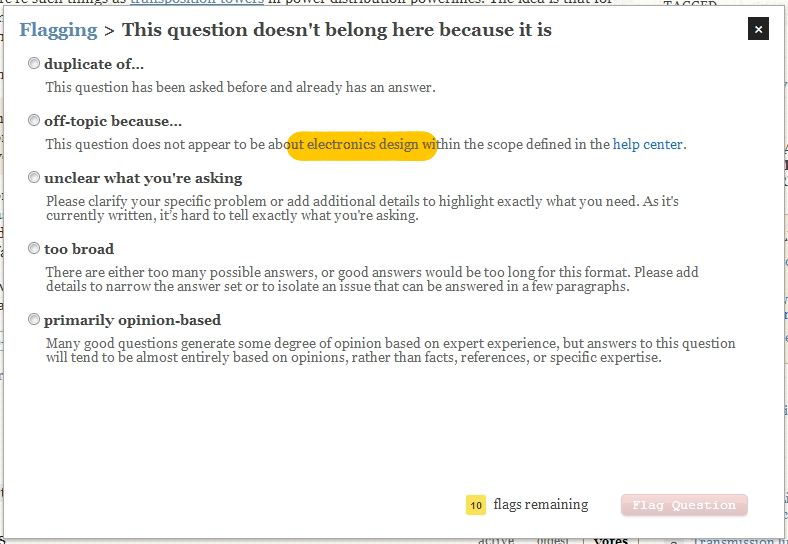Are (power) electrical engineering questions on topic for EE.SE? If so, should the wording of in the "On-topic" FAQ and other places be changed to reflect this?
The community acceptance of questions like How do transposition towers in transmission lines work?, as measured by upvotes, appears to indicate that power electrical engineering questions are well received by the community here. A high-rep user also commented in the past:
I think that (high-power) electrical, electronics, and computer engineers could coexist quite happily on a single Stack Exchange site.
Yet the "on-topic FAQ" seems to imply that only electronics design questions are permissible. To wit (emphasis mine):
What topics can I ask about here?
This site is for electronics and electrical engineering professionals, students, and enthusiasts. We ask and answer questions about electrical and electronics engineering topics, which include electronics, physical computing, and those working with microcontrollers, Arduinos and embedded systems. We feel the best Electronics Design questions have a schematic, links to pertinent datasheets or some source code in them, but if your question generally covers …
- a specific electronics design problem
- the theory and simulation of electromagnetic forces
- a communication scheme
- the writing of firmware for bare-metal or RTOS applications
...
This also occurs in the "close vote" dialog:

Are (high-power) electrical engineering questions on topic here or not? If they are on topic, can the site FAQ's and other documentation be changed to reflect this?
Note this would obviate the need for a separate Electrical Power Engineering.SE. I created this Area51 proposal after reading the EE.SE on-topic FAQ which implied that electrical power engineering wouldn't be on topic for EE.SE.
